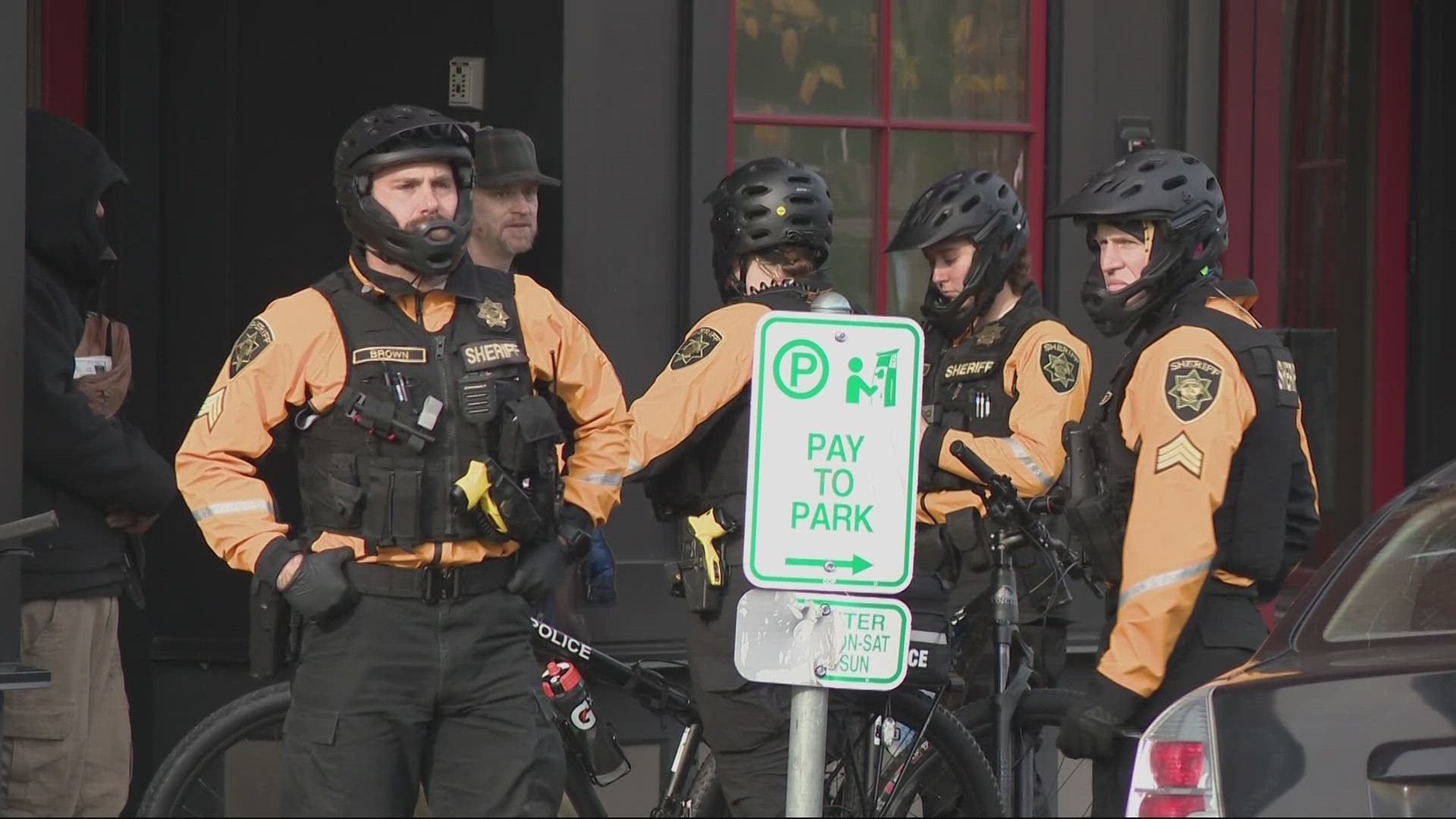PORTLAND, Ore. — On the streets of Portland’s Old Town neighborhood, it’s easy to go unnoticed. Two people who struggle with an addiction to drugs described it as feeling scared and alone.
“A lot of us don’t know where to start or where to go for any kind of services,” one of them said.
It’s that disconnect the Portland Police Bureau is now trying to fix.
“We’re trying to kind of break that cycle now by just starting to introduce people to service providers who can come out on the street that moment, hopefully make those connections and convince people to go into recovery,” said Officer David Baer, who’s part of the Central Precinct Bike Squad.
This new approach to addiction hit the streets Wednesday morning.
“Today is a pilot project, this is the first day, very early stages to see if we can make those in person connections here on the street to hopefully steer people into recovery,” said Baer.
Joe Bazeghi and his team at Recovery Works Northwest are just one part of an entire team assisting law enforcement. When police find someone willing to get help, they connect them with peer support specialists from the Mental Health and Addiction Association of Oregon and Northwest Instituto Latino. Recovery Works Northwest provides detox treatment and services. All are providers through the Behavioral Health Resource Network, which is funded by Oregon’s Measure 110. It’s unclear what happens when people decline help.
As opposed to what police have been doing under Measure 110, which is giving people using drugs in public a fine and a number to call for treatment.
“If we find you using drugs in public we issue a citation and hand out the drug screening card for Measure 110. Today also included asking folks if they wanted help from a social worker right now in the moment,” said Baer.
RELATED: Drug decriminalization would go up in smoke under proposed Measure 110 'fix,' but that's not all
“It’s nice to see that they’re helping instead of just giving people a hard time,” said Grace who frequents Old Town.
On Wednesday, out of the 67 people approached for public drug usage, only 17 accepted help from social works on the spot. Bike officers on patrol came across one person experiencing a severe overdose before administrating three doses of Narcan. Outreach workers later offered recovery services before they were transported to the hospital, according to a social post from the PPB Bike Squad Instagram page.
It’s with the help of state troopers that the bike squad can take on such a project.
“We just have more presence out there. We can cover more ground and reach more people,” said Officer Baer.
“It would give them a chance to see us as actual people,” added a man who struggles with a drug addiction.
Given the project is still in the pilot phase, there are still a lot of unknowns. The outreach workers already see that they’re going to need many more staff to keep up with a project like this. There also needs to be more detox beds set aside for those who want help. The city currently has just over 100 beds and the need is much greater than that.

